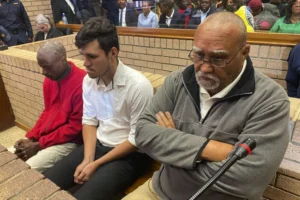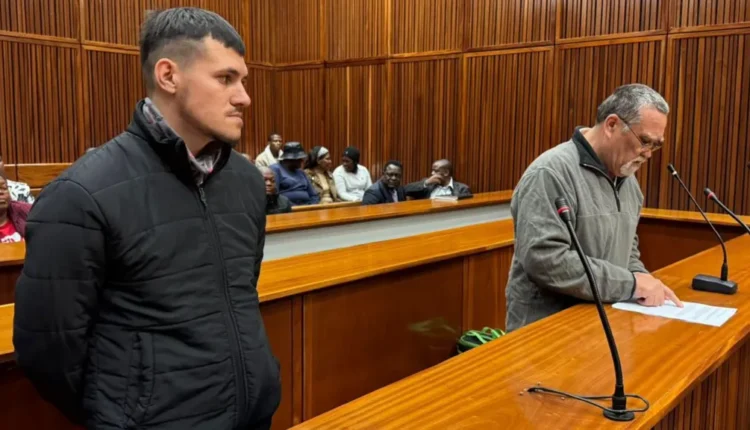A chilling murder trial in South Africa’s Limpopo province has drawn national attention after farm worker Adrian de Wet, 20, admitted to disposing of two Black women’s bodies by feeding them to pigs—but claims he acted under duress.

The victims, Maria Makgato, 45, and Lucia Ndlovu, 34, were allegedly searching for discarded dairy products on a farm near Polokwane when they were shot dead last year. De Wet, now a state witness, accuses farm owner Zachariah Johannes Olivier, 60, of pulling the trigger before forcing him to dump the bodies into a pig enclosure to destroy evidence. If the court accepts his testimony, charges against him will be dropped, while Olivier and another worker, William Musora, 50, remain jailed on murder and obstruction charges.
The case has reignited South Africa’s volatile racial tensions, particularly in rural areas where white-owned farms remain flashpoints decades after apartheid. Most farmland is still controlled by the white minority, while Black laborers often face low wages and harsh conditions—a dynamic fueling deep-seated resentment.
The trial also unfolds against a contentious political backdrop, with former U.S. President Donald Trump recently accusing South Africa of “white genocide,” a claim vehemently denied by President Cyril Ramaphosa’s government. Opposition party Economic Freedom Fighters, which advocates for land redistribution, attended the tense court proceedings, where victims’ relatives wept as details of the killings emerged.
Prosecutors allege the women were targeted while scavenging soon-to-expire food meant for livestock, with Ndlovu’s husband surviving a gunshot during the incident. Musora, a Zimbabwean national, faces additional immigration charges, while Olivier has yet to enter a plea. The gruesome method of body disposal has horrified South Africans, with activists drawing parallels to apartheid-era violence. Legal experts note the case’s outcome could set a precedent for how courts handle racially charged farm crimes, which often pit white landowners’ claims of self-defense against accusations of systemic brutality toward Black South Africans.
As the trial adjourned until next week, protesters outside the courthouse demanded justice, with some calling for the farm’s seizure. Olivier’s wife, visibly distraught in court, adds a layer of complexity to a case that underscores South Africa’s unresolved racial and economic divides.
With De Wet’s testimony central to the prosecution’s case, the proceedings may determine whether accountability falls solely on the farm owner or exposes broader complicity in rural violence. The trial’s next phase will be closely watched as a bellwether for justice in a nation still grappling with apartheid’s legacy.



